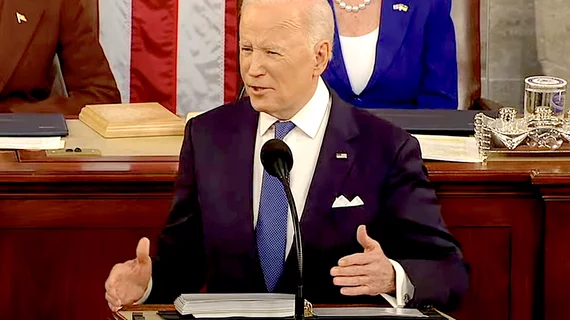Politico: Biden to toss Trump’s ‘conscience’ rule for healthcare workers
The Biden administration is making a move to get rid of a rule that allows healthcare workers to refuse to provide services that go against their personal beliefs.
The rule was implemented during the Trump administration and provides healthcare workers protections if they refuse to perform, accommodate or assist with certain healthcare services on religious or moral grounds.
The news was first reported by Politico, which cited people familiar with the matter. The Department of Health and Human Services confirmed the news, with a spokesperson telling the media outlet, “HHS has made clear through the unified regulatory agenda that we are in the rulemaking process.” In fact, HHS could make a move to end the rule as soon as by the end of this month, Politico reported.
The news comes as a wave of anti-abortion healthcare bills have come into fruition across a number of Republican-led states. The conscience rule would allow healthcare workers to refuse services in comprehensive reproductive healthcare, such as dispensing abortion pills at pharmacies. In addition, the Supreme Court is due to rule on a case that could potentially overturn Roe v. Wade, the 1973 ruling that legalized abortion care in the U.S. The rule would also apply to other sensitive healthcare issues, including gender-affirming care, HIV and STD services, contraceptives and more.
However, the conscience rule was never implemented after localities and advocacy groups sued. The move by the Biden administration to undo the rule was largely expected, and the White House has already undone many of the healthcare policies implemented during the Trump era.
Related Policy & Regulations Content:
New York grants nurse practitioners full practice authority, despite radiologist opposition
MD Anderson appointed a chief diversity, equity and inclusion officer
WHO issues updated brief 'to spark an overdue cultural change in medical imaging'

